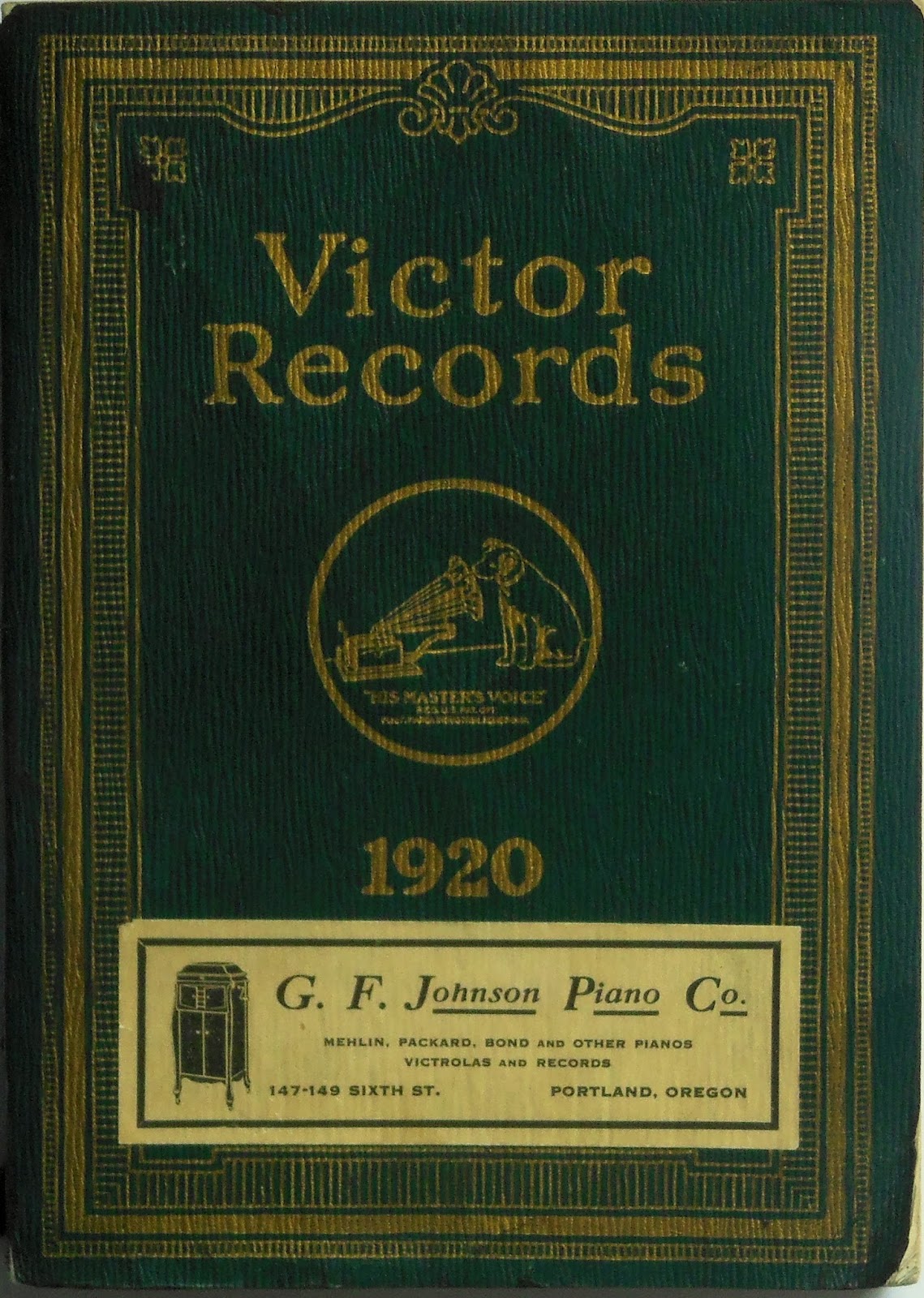I love thumbing through these old record catalogs - seeing what's in print, finding records I have, and getting a feel for musical tastes of the time. Of course, I'm particularly interested in listings for records and styles of music that I like.
By 1920, changing tastes meant that the 1913-1914 recordings of James Reese Europe's Society Orchestra, once the standard for African-American dance/popular music, were out of print. But there was an exciting new style of music called jazz - so new, at least as far as the
 record-buying public knew, that there only nine jazz records listed. And they were given their own special listing; when I looked for the Original Dixieland Jazz Band, the catalog directed me to "See 'Jazz Band.'" If it looks like more than nine records were listed, look again - each side is listed separately.
record-buying public knew, that there only nine jazz records listed. And they were given their own special listing; when I looked for the Original Dixieland Jazz Band, the catalog directed me to "See 'Jazz Band.'" If it looks like more than nine records were listed, look again - each side is listed separately.The Victor label represented "class," and they were extremely proud of their Red Seal records. This was their classical line, with an emphasis on opera. At this time Red Seals were more expensive than Victor's regular black-label records, and were still only one-sided. The Victor catalogs of this period all had a special section near the back, printed on pink paper, with the Red Seal listings. This section is more elaborate that the rest of the catalog, with pictures and biographies (sometimes somewhat fanciful) of the artists. Victor didn't get the full benefit of its contract with Enrico Caruso, which "does not expire until 1933," since Caruso himself unfortunately expired the next year.
And thanks to other insane 78 collectors on the web, I now know where the G.F. Johnson Piano Co. was in Portland. They were the Victor Records dealer who distributed this copy of the 1920 catalog, as shown by the sticker on the cover. It looks like there's a nice little park with an interesting sculpture there now.



Very nice posting
ReplyDeleteVery nice posting. Good shout out to James Reese Europe who was the official dance band for Vernon and Irene Castle.
ReplyDelete